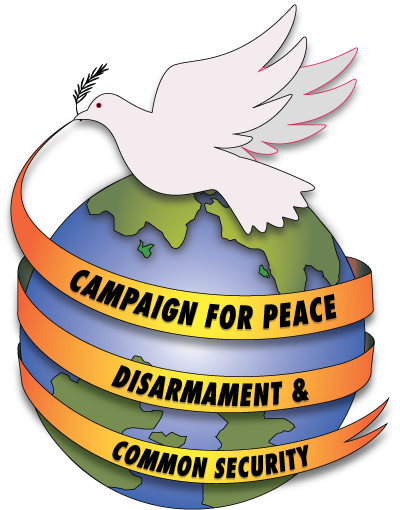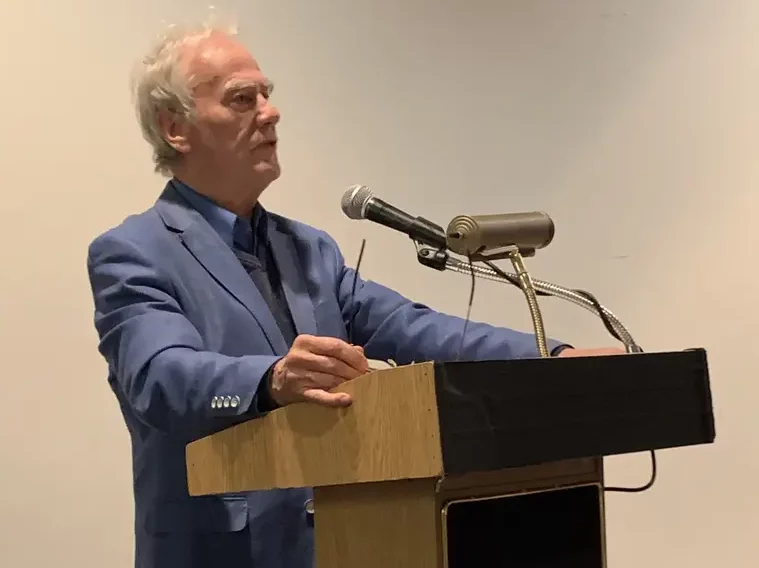Reiner Braun is the former Executive Director and Co-President of the International Peace Bureau. He was Executive Director of Scientists for Peace and Sustainability, and was long associated with INES, and the German Pugwash Group.
CPDCS/IPB/RLS Round Table. New York, November 28, 2023
No country in the world exists on its own; the interactions with others determine the system of international relations and the relationships between them. This international system changes and has its own dynamics. These dynamics shape the behavior of the subsystems and individual actors. During the Cold War, for example, the international system was characterized by bipolarity, which was replaced by the unipolarity of US hegemony. This in turn is currently coming to an end and a struggle for a new multipolarity is taking place.
At the same time, the international system is anarchic, has only a low density of regulation and no legitimized monopoly on the use of force. It remains hierarchical and dominated by violence, despite the UN and international law that has developed over decades.
Turning to multilateralism is an opportunity, but not a guarantee for peaceful conflict resolution. Multilateralism is an opportunity for a more peaceful world if it is inclusive and based on a policy of “common security” according to Palme, Brandt and Kreisky (see also the so-called 2nd Palme Report “our shares future” from April 2022). This requires, among other things, new independent regional structures for common security, but also a new, fairer global economic system. Disarmament to finance the global challenge and as a materialization of cooperation is indispensable. The “de-dollarization” is indispensable.
Peaceful resolution of conflicts – largely regionally oriented and increasingly enforced by the states of the Global South – and comprehensive disarmament are central components of a multipolar world order.
This hierarchy is based on power and resources, the first of which is the military, its modern equipment and military deployment potential, but also the strength of the economy, a country’s technologies, so-called soft power and political stability. The more power resources a country has, the more options it has for action. The most convincing example is the development of China, which has freed itself from colonial and development-inhibiting developments to become a major economic, geostrategic and military power active in the international context. China is certainly the most outstanding but not the only example of the kind of development that is manifesting itself in many of the world’s emerging economies, most notably in India and Brazil.
The end of the Soviet Union and Russia’s economic and social weakness in 1990/2000 shifted the dominance of action unilaterally to the USA and to some extent the EU. The (almost) global triumph of neoliberalism is the economic and social expression of this unilateral hegemony. The eastward expansion of NATO and its international expansion (especially to Asia) are the logical strategic-military consequences.
The economic crises of 2007/08 and the rise of China at the latest marked the beginning of a longer process of change in international geostrategic constellations. Political expressions of these changes are the founding of the Shanghai Cooperation and the BRICS (and from 2024 BRICS plus) alliance, a generally more active role of the Global South in international politics, including in the UN, in the G20, in regional alliances or in the peaceful ending of wars and conflicts. Western capitalism is on a global economic downward spiral – see the distribution of international gross national product, trade flows, patent applications, the development of science, the availability of economic and technological resources and much more. This process of economic, political, but also ethical and moral changes in the international constellation of forces has been dramatically intensified and dynamized by the war in Ukraine and the Gaza conflict.
On the agenda of world politics is the end of a 500-year era of dominance by the global West, colonialism and neo-colonialism and the hegemony of the USA.
This shift towards a multipolar world is characterized worldwide by fierce political and military conflicts, some of which are being fought as proxy wars/conflicts. Long-standing agreements on international arms control have been abandoned as an instrument for regulating at least the threat of nuclear war. International law has eroded and is being misused for double standards and one-sidedness.
The claim to leadership of the USA and the NATO West with its few Asian allies (Japan, South Korea, partly the Philippines) is being openly questioned – inclusive multilateralism is being called for by the vast majority of the world’s states.
Emblematic of these changes, the 2009 Yekaterinburg BRICS Statement states that “we want a multipolar world of international law, mutual respect, cooperation, joint action and collective decision-making by all states”.
These shifts are taking place in a climate of confrontation, illegitimate sanctions and instability provoked by the USA and NATO. The conflicts in Southeast Asia are also an expression of this geostrategic struggle between historically “old” dominant powers and new emerging powers. The struggle for equality, respect, recognition of one’s own path, cooperation and dialog are an expression of this fundamental – historically unique – reorganization of the world as a multipolar community. This is taking place under the sword of Damocles of ecological destruction, especially dramatic climate change, which is further exacerbating all conflicts.
These tectonic shifts are irreversible, which does not mean that they cannot be halted in individual cases of conflict or development. An end to these tectonic shifts is only possible through a nuclear war catastrophe.
Turning to multilateralism is an opportunity, but not a guarantee for peaceful conflict resolution. Multilateralism is an opportunity for a more peaceful world if it is inclusive and based on a policy of “common security” according to Palme, Brandt and Kreisky (see also the so-called 2nd Palme Report “our shares future” from April 2022). This requires, among other things, new independent regional structures for common security, but also a new, fairer global economic system. Disarmament to finance the global challenge and as a materialization of cooperation is indispensable. The “de-dollarization” is indispensable.
Peaceful resolution of conflicts – largely regionally oriented and increasingly enforced by the states of the Global South – and comprehensive disarmament are central components of a multipolar world order.

